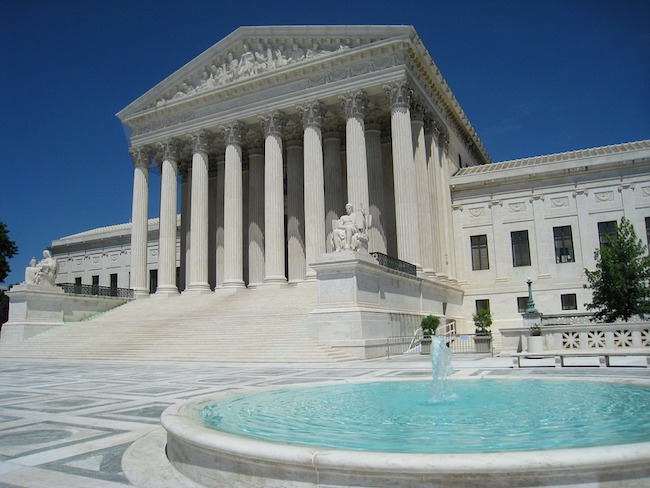Supreme Court Hears Oral Arguments on Texas Abortion Law by Madeline Leesman for Town Hall
The Supreme Court of the United States (SCOTUS) heard oral arguments for two cases surrounding S.B. 8 on Monday, the Texas law that outlaws abortion after fetal heartbeat detection. The Court heard the both sides’ arguments for almost three hours. This came ten days after SCOTUS agreed to promptly review the cases.
In the case Whole Woman’s Health v. Texas, the justices heard from Marc Hearron, a lawyer for the Center of Reproductive Rights, who represented a coalition of Texas abortion providers pushing back against S.B. 8. Solicitor General Elizabeth Prelogar argued on behalf of the Department of Justice (DOJ) in their lawsuit, United States v. Texas, against S.B. 8.
The lawyers fighting S.B. 8 described it as unconstitutional and attacked a provision of the law that allows private citizens to sue anyone who provides an illegal abortion or aids or abets someone seeking an illegal abortion. Those who successfully bring lawsuits under S.B. 8 can receive up to $10,000 per violation proven.
“Texas designed S.B. 8 to thwart the supremacy of federal law in open defiance of our constitutional structure,” Prolegar said to SCOTUS. “States are free to ask this court to reconsider its constitutional precedents, but they are not free to place themselves above this court, nullify the court’s decisions in their borders, and block the judicial review necessary to vindicate federal rights.”
Additionally, Hearron argued that abortion providers should be able to file lawsuits targeting state court judges, clerks and private entities who enforce S.B. 8. He explained that the rules created by Texas could “turn the courts into a weapon that can be used to nullify constitutional rights.”
Some on the Supreme Court, led by Justice Elena Kagan, suggested that SCOTUS could allow the suit Whole Woman’s Health v. Texas to go forward and refrain from the DOJ case United States v. Texas. At one point. Justice Kavanaugh asked whether S.B. 8 could become a model for “suppression of other constitutional rights,” such as gun rights, free speech rights, and freedom of religion.




